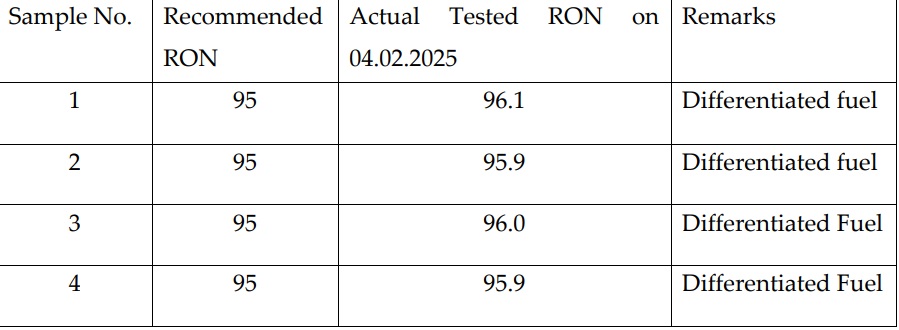The Kenya Bureau of Standards (KEBS) and the Energy and Petroleum Regulatory Authority (EPRA) have assured consumers and the general public of their commitment to ensuring the quality of petroleum fuels available in the country.
The reassurance follows recent concerns about the standard of fuel being sold at various retail stations.
In an official statement, KEBS and EPRA emphasized that all petroleum fuels imported into Kenya undergo rigorous testing and certification before they can enter the market.
These quality assurance measures are designed to ensure compliance with Kenyan fuel standards and to protect consumers.
Addressing recent reports and videos on social media questioning fuel quality, the two regulatory bodies confirmed that they conducted extensive confirmatory tests on fuel samples from various petroleum retail stations, including those mentioned in the reports.
The results indicated that all sampled stations met the recommended Research Octane Number (RON) ratings as stipulated by Kenyan standards.
“In light of the recent reports and videos circulating on social media, we have conducted extensive confirmatory tests on fuel samples from various petroleum retail stations, including those specifically mentioned in the reports. We are pleased to report that the results of these tests confirm that the fuel at all sampled stations meet the recommended Research Octane Number (RON) ratings as stipulated by Kenyan Standards.” The statement read.
The agencies further noted that in cases where Super Petrol is marketed as a premium fuel with a higher RON rating, their tests consistently verified compliance with these elevated standards.
They reassured consumers that there is no cause for alarm and urged them to remain confident in the fuel quality available in the market.
“Furthermore, in instances where Super Petrol is marketed as a premium fuel with higher RON ratings, our tests consistently affirm compliance with these higher standards. We urge consumers to continue to have confidence in the quality of petroleum fuels available, as there is no cause for alarm.” The regulatory bodies said.
The test laboratory results are outlined hereunder:
KEBS and EPRA also addressed the availability of fuel testing devices in the market noting that, while such gadgets may provide a general indication of the RON rating, they cautioned that accurate assessments can only be conducted in controlled laboratory settings.
“We would like to caution consumers and the general public that there are gadgets in the market that can provide a qualitative indication of the RON rating but the results from these gadgets cannot be guaranteed unless confirmed through laboratory tests that follow the required standard procedures of sampling, equipment calibration, and
testing.” They cautioned.
Proper laboratory testing ensures that all variables are monitored and that sampling, equipment calibration, and testing adhere to the required standard procedures.
The regulatory bodies reiterated their commitment to transparency and accuracy in their findings, emphasizing their dedication to maintaining the highest fuel quality standards while also acknowledging the public’s concerns and assured continued efforts to prioritize consumer safety and satisfaction.










